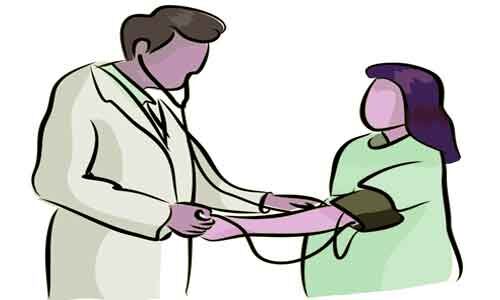- Home
- Medical news & Guidelines
- Anesthesiology
- Cardiology and CTVS
- Critical Care
- Dentistry
- Dermatology
- Diabetes and Endocrinology
- ENT
- Gastroenterology
- Medicine
- Nephrology
- Neurology
- Obstretics-Gynaecology
- Oncology
- Ophthalmology
- Orthopaedics
- Pediatrics-Neonatology
- Psychiatry
- Pulmonology
- Radiology
- Surgery
- Urology
- Laboratory Medicine
- Diet
- Nursing
- Paramedical
- Physiotherapy
- Health news
- Fact Check
- Bone Health Fact Check
- Brain Health Fact Check
- Cancer Related Fact Check
- Child Care Fact Check
- Dental and oral health fact check
- Diabetes and metabolic health fact check
- Diet and Nutrition Fact Check
- Eye and ENT Care Fact Check
- Fitness fact check
- Gut health fact check
- Heart health fact check
- Kidney health fact check
- Medical education fact check
- Men's health fact check
- Respiratory fact check
- Skin and hair care fact check
- Vaccine and Immunization fact check
- Women's health fact check
- AYUSH
- State News
- Andaman and Nicobar Islands
- Andhra Pradesh
- Arunachal Pradesh
- Assam
- Bihar
- Chandigarh
- Chattisgarh
- Dadra and Nagar Haveli
- Daman and Diu
- Delhi
- Goa
- Gujarat
- Haryana
- Himachal Pradesh
- Jammu & Kashmir
- Jharkhand
- Karnataka
- Kerala
- Ladakh
- Lakshadweep
- Madhya Pradesh
- Maharashtra
- Manipur
- Meghalaya
- Mizoram
- Nagaland
- Odisha
- Puducherry
- Punjab
- Rajasthan
- Sikkim
- Tamil Nadu
- Telangana
- Tripura
- Uttar Pradesh
- Uttrakhand
- West Bengal
- Medical Education
- Industry
Adding Amlodipine or Valsartan to antihypertensives improves diastolic dysfunction in high BP

Researchers have found that addition of Amlodipine a Calcium channel blocker or valsartan an ARB was associated with a significant improvement of diastolic dysfunction associated with high blood pressure.The new study has been published in the Journal of Cardiovascular Imaging.
Patients with high blood pressure are at increased risk of diastolic dysfunction. The researchers conducted a study to ascertain whether addition of amlodipine would be superior to valsartan in improving diastolic dysfunction associated with high BP or hypertension.
Diastolic dysfunction is a common problem, with many people aged older than 70 years having the condition. In the majority of cases, the condition is not severe enough to lead to diastolic heart failure. Diastolic heart failure is also referred to as heart failure with normal ejection fraction or heart failure with preserved ejection fraction.
The researchers conducted a randomized trial in 104 controlled, patients of high blood pressure (BP) with diastolic dysfunction.
The subjects were randomized to receive either amlodipine 2.5 mg or valsartan 40 mg, in addition to antihypertensive therapy. The primary end point was the change in the ratio of early mitral inflow velocity to early mitral annular relaxation velocity (E/E') from baseline to the 6-month follow-up. Secondary end points included changes in systolic blood pressure (SBP), left ventricular (LV) mass index, and left atrial volume index.
They found that systolic Blood Pressure decreased significantly from baseline in both treatment groups (p < 0.001). E/E' decreased significantly from 13.0 ± 2.2 to 12.0 ± 2.7 in the amlodipine arm and from 14.4 ± 4.3 to 12.7 ± 3.7 in the valsartan arm (p < 0.01 in both groups). The change of E/E' was not significantly different between treatment groups (p = 0.25). There were also no significant between-group differences regarding the changes in SBP, LV mass index, and left atrial volume index. Two patients (3.8%) in the amlodipine group and 1 (16%) in the valsartan group had serious adverse event.
The researchers concluded that in hypertensive patients, addition of amlodipine or valsartan was associated with an improvement of diastolic dysfunction, but the effects on diastolic dysfunction did not differ significantly between the treatment groups. Addition of low-dose Calcium channel blocker or ARB was associated with a significant improvement of diastolic dysfunction.
For further reference log on to:
Dr Kamal Kant Kohli-MBBS, DTCD- a chest specialist with more than 30 years of practice and a flair for writing clinical articles, Dr Kamal Kant Kohli joined Medical Dialogues as a Chief Editor of Medical News. Besides writing articles, as an editor, he proofreads and verifies all the medical content published on Medical Dialogues including those coming from journals, studies,medical conferences,guidelines etc. Email: drkohli@medicaldialogues.in. Contact no. 011-43720751


